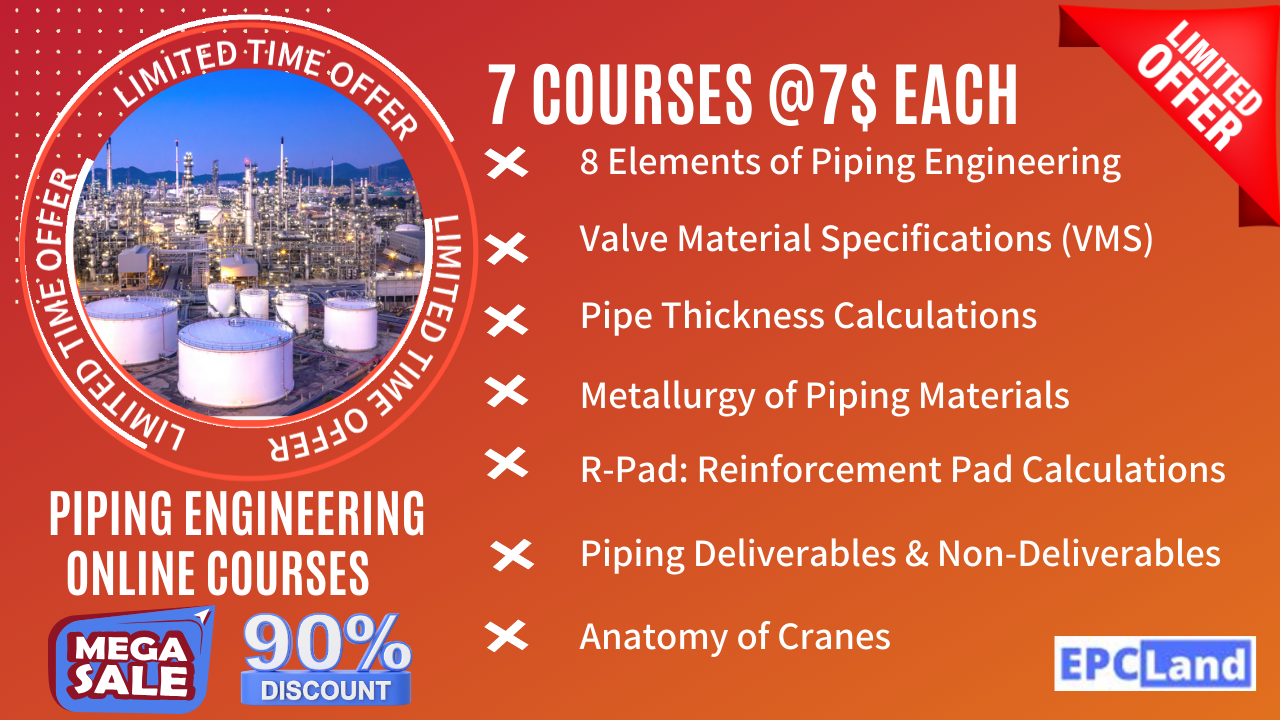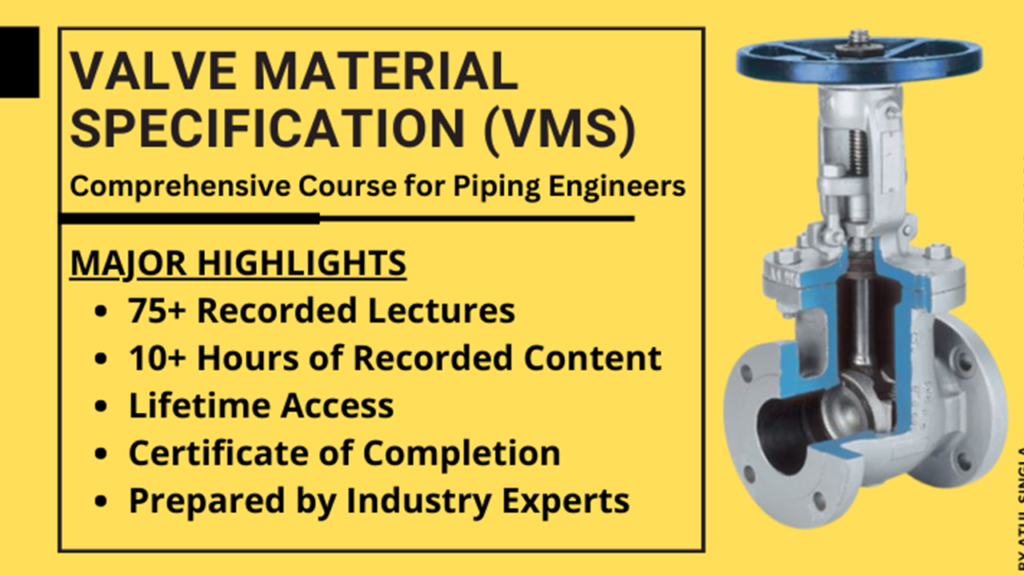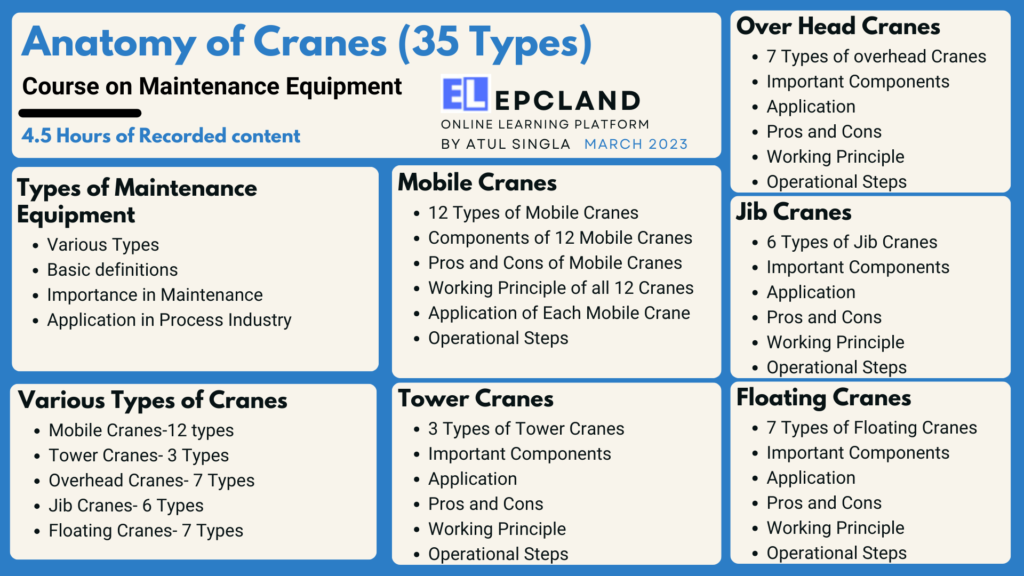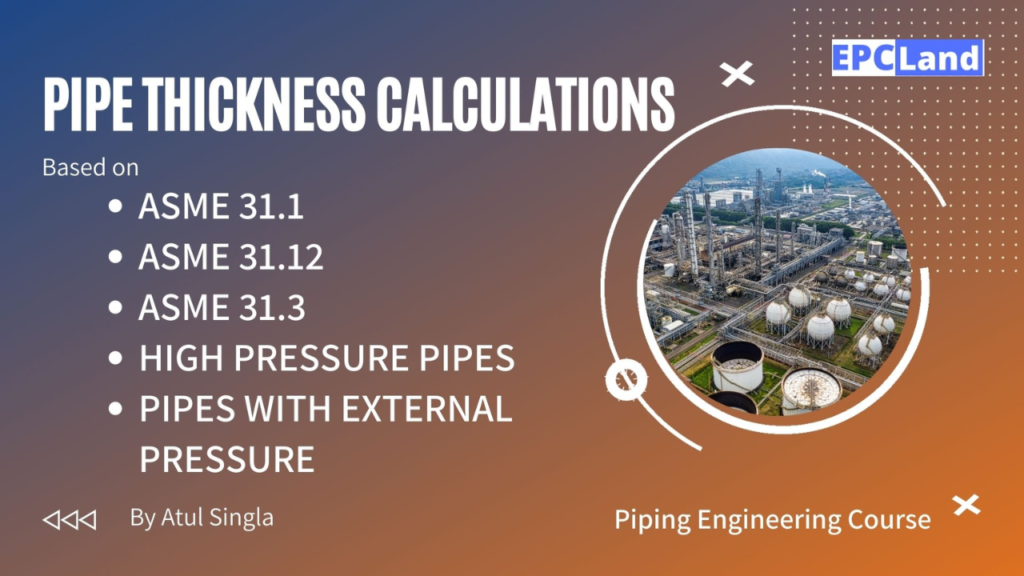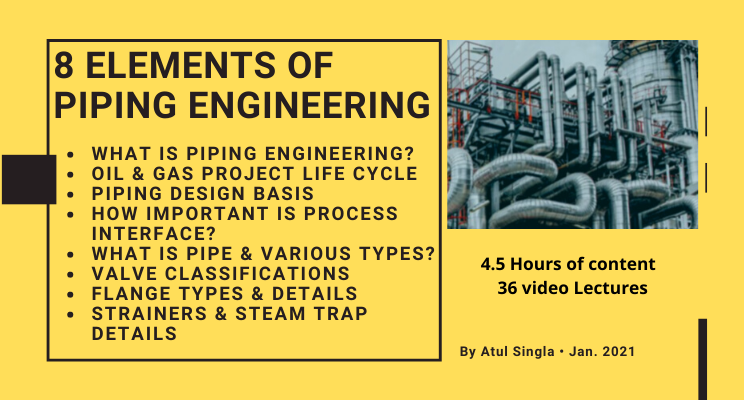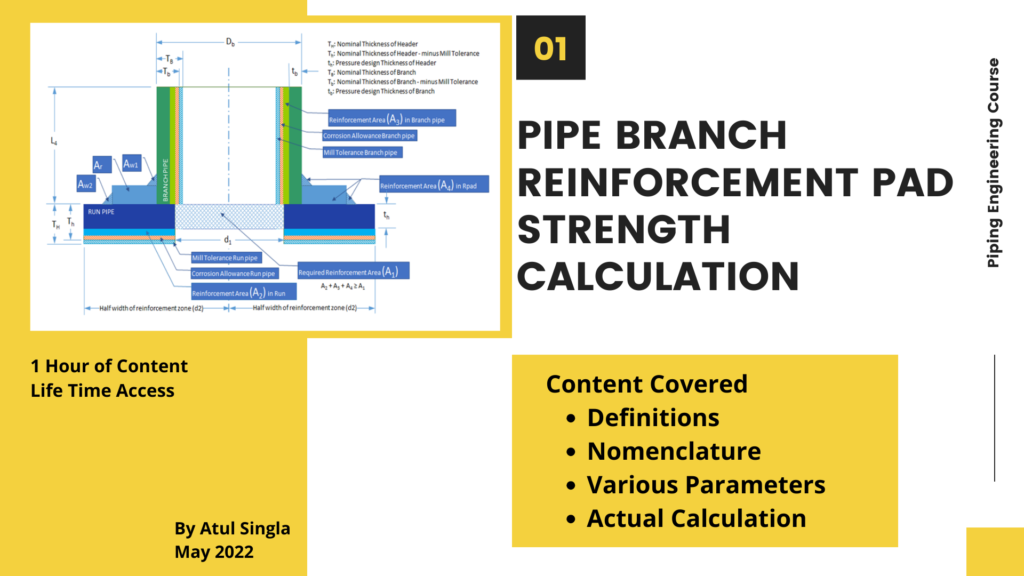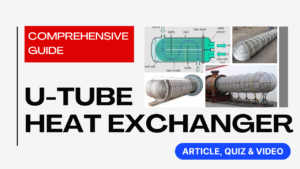Table of Contents
Introduction
Welcome to EPCLAND Learning Platform, where knowledge meets affordability! In this article, we unveil an exceptional opportunity to enhance your skills and understanding in the realm of piping engineering and related disciplines. At an astonishingly economical cost of only $7 each, we present seven meticulously designed courses, each catering to a specific facet of this intricate field.
Course-1: Valve Material Specification (VMS)
Course-2: Anatomy of Cranes
Apply Discount Code SPECIAL30 for additional 30% discount
Check all published courses by EPCLand
Course-3: Pipe Wall Thickness Calculations
Course-4: Piping Activities: Deliverables & Non-Deliverables
Course-5: Metallurgy of Piping Materials
Apply Discount Code SPECIAL30 for additional 30% discount
Check all published courses by EPCLand
Course-6: Elements of Piping Engineering
Course-7: R-Pad Calculations
Don’t Forget to check the Complete Course on Piping Engineering
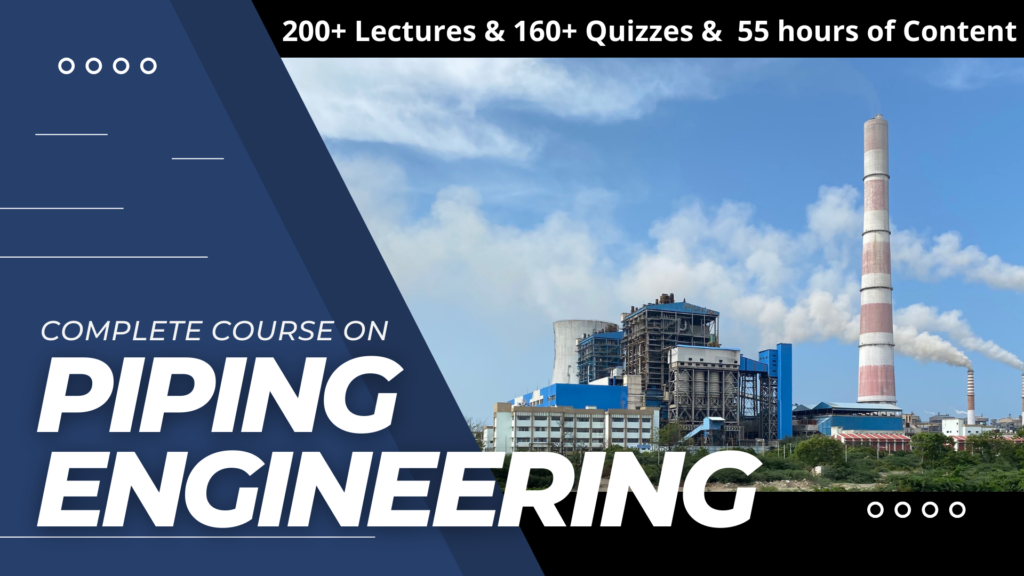
Apply Discount Code SPECIAL30 for additional 30% discount
Check all published courses by EPCLand
Get in Touch

Recommended courses (Published on EPCLand)
- Basics of Piping Engineering
- Piping Layout Engineering
- Piping Material Engineering
- Piping Stress Analysis
- Complete Course on Piping Engineering
- Material Requisitions
- Piping Material Specifications
- Valve Material Specifications
Don’t miss the published articles on following:
Conclusion
In conclusion, EPCLAND Learning Platform offers an incredible opportunity to access knowledge and expertise in piping engineering without breaking the bank. These seven courses, covering vital topics like metallurgy, pipe wall thickness calculations, and more, provide a pathway to elevate your skills. Whether you’re a seasoned professional or just beginning your journey in piping engineering, these courses at $7 each are an unbeatable value. Don’t miss out on this chance to enrich your understanding and excel in the fascinating world of piping engineering. Get in touch and enroll in the complete piping engineering course to take your skills to the next level!
Attempt Quiz on Piping Engineering
Question 1:
What does “ASME” stand for in the context of Piping Engineering?
Explanation: “ASME” stands for American Society of Mechanical Engineers.
Question 2:
Which material is commonly used for piping in high-temperature and high-pressure applications?
Explanation: Carbon Steel is commonly used for piping in high-temperature and high-pressure applications.
Question 3:
What does “NDT” stand for in the context of Piping Engineering?
Explanation: “NDT” stands for Non-Destructive Testing in the context of Piping Engineering.
Question 4:
Which of the following is a type of pipe fitting that allows for a change in pipe diameter?
Explanation: A “Reducer” is a type of pipe fitting that allows for a change in pipe diameter.
Question 5:
Which standard governs the design and construction of pressure piping systems?
Explanation: The design and construction of pressure piping systems are governed by the ASME B31.3 standard.
Question 6:
What type of stress occurs in a pipe due to thermal expansion or contraction?
Explanation: The stress that occurs in a pipe due to thermal expansion or contraction is called “Thermal Stress.”
Question 7:
Which type of valve is used to regulate the flow of fluid in a piping system?
Explanation: A “Control Valve” is used to regulate the flow of fluid in a piping system.
Question 8:
What is the purpose of a “Flange” in a piping system?
Explanation: The purpose of a “Flange” in a piping system is to connect two pipes.
Question 9:
What does “HSE” stand for in the context of Piping Engineering?
Explanation: “HSE” stands for Health, Safety, and Environment in the context of Piping Engineering.
Question 10:
Which type of pipe is known for its corrosion resistance and is often used in chemical processing?
Explanation: FRP (Fiberglass Reinforced Plastic) pipe is known for its corrosion resistance and is often used in chemical processing.
